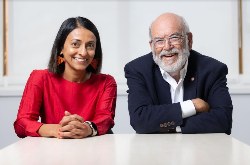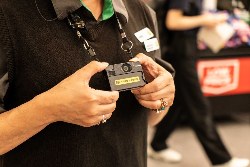Equity crowd funding carries risks, high failure rate
Equity crowd funding, latest step in much-hyped social capital, carries risks, high failure rate
By Suze Metherell
April 23 (BusinessDesk) – Equity crowd funding, which became legal in New Zealand this month, comes with a high risk of failure based on figures showing existing forays into social capital have a success rate of less than 50 percent, one new entrant says.
The Financial Markets Conduct Act, which came into effect on April 1, allows businesses to crowd fund by offering equity of up to $2 million without the burden and costs associated with a prospectus, effectively giving investors skin in the game rather than getting a ‘reward’ or making a donation. The Financial Markets Authority has received 12 expressions of interest from companies wanting to set up as equity crowd funding platforms, of which two have applied for a licence.
“The balance of probabilities sits on the side that they won’t be successful and that’s going to be a challenge for the companies wanting to raise money, and it’s also going to be a challenge for the crowd funding platforms,” said David Wallace, director with Armillary Private Capital, which has teamed with UK-based Crowdcube to apply for an equity crowd funding licence.
“There are some very real risks for a number of the crowd funding businesses themselves, whether they can build a sustainable business model – that’s probably a question globally for all the crowd funding platforms, not just for New Zealand ones,” Wallace told BusinessDesk.
Armillary is the operator of the Unlisted share trading platform. Partner Crowdcube of the UK began in 2011 and has raised more than 22 million pounds.
Kickstarter, the US-based crowd funder which has garnered more than US$1 billion in pledges, has a success rate of about 44 percent. Last year 3 million people pledged US$480 million, or US$1.3 million a day, on its website, according to its own data. Of 198 New Zealand-based projects listed on the site, 103 had been unsuccessful or cancelled, 24 were in the process of fundraising and 71 had secured funding, a success rate of 35 percent for kiwi projects.
“We know from experience in the UK that 25 percent of pitches that actually get to Crowdcube actually get activated on the platform, and of that about 25 percent actually get funded, so you’re probably talking about 8-and-a-quarter-bit percent that actually get funded of those looking for funding,” Wallace said.
Wellington-based crowd funder PledgeMe is another group planning to add equity-based crowd funding. The platform has been operating for the past two years and claims a 49 percent success rate, having raised more than $2.5 million for some 560 projects. Auckland-based Snowball Effect says it has 11 companies looking to raise funds through its platform.
The FMA says the purpose of licensing is to ensure members of the public are given all the information they’re entitled to in the absence of a requirement for a prospectus.
“The real focus of licensing the intermediaries is to make sure the customer gets real clarity over what the risks are, so it’s not necessarily that they’re reducing the risks, but making sure that there is a transparent disclosure of the risks,” said Colin Magee a senior FMA adviser. “It might be that there isn’t much information, but as long as it is clear what information there is and isn’t that’s sort of the job of that licensed intermediary.”
Equity crowd funders would typically earn their fee from a percentage of the capital raised, meaning they get nothing if the offer doesn’t meet its target.
Armillary’s Wallace says its platform plans to restrict who it will accept and expects to successfully raise funds for six or seven companies a year.
Auckland-based MeMini, a wearable camera developer, raised US$94,300 on Kickstarter in February, exceeding its US$50,000 goal. Co-founder Sam Lee said he will follow equity crowd funding closely, but wasn’t sure if his business would use it to raise more capital.
“Reward-based crowd funding is a great way to get seed money and to validate your concept and idea without having to actually go to market with a product,” Lee said.
Queenstown camera company Syrp used Kickstarter in June 2012 to raise US$636,766, surpassing its US$150,000 target, for its Genie time lapse camera. Wellington-based Loomio, the makers of an app which facilitates online decision making and is part of the Enspiral Foundation, last week raised US$124,509, surpassing their US$100,00 goal using CrowdtiltOpen, a San Francisco-based crowd fund website.
(BusinessDesk)


 Federated Farmers: Government Ends War On Farming
Federated Farmers: Government Ends War On Farming University of Auckland: NZ Researchers Drive Work On International AI Framework
University of Auckland: NZ Researchers Drive Work On International AI Framework Woolworths: Rolling Out Team Safety Cameras To All Stores As Critical Tool For De-escalating Conflict
Woolworths: Rolling Out Team Safety Cameras To All Stores As Critical Tool For De-escalating Conflict  Consumer NZ: Environmentally Conscious Shoppers At Risk Of Being Greenwashed
Consumer NZ: Environmentally Conscious Shoppers At Risk Of Being Greenwashed Hugh Grant: Facing The Future - The Use Of Biometric Tech
Hugh Grant: Facing The Future - The Use Of Biometric Tech John Mazenier: Gaffer Tape And Glue Delivering New Zealand’s Mission Critical Services
John Mazenier: Gaffer Tape And Glue Delivering New Zealand’s Mission Critical Services



